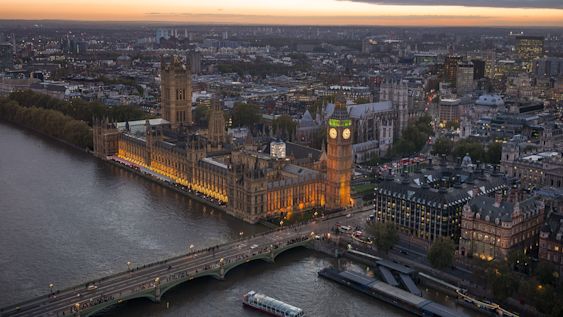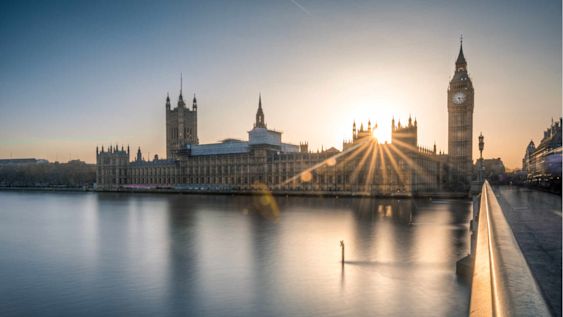
What's Trust Got To Do With It? Public Trust in and Expectations of Politicians and Parliament
Did the expenses scandal really cause a collapse in public trust of politicians and the political system? Is a fall in trust key to the problematic relationship between voters and politicians? Rather than trust, this 2010 report identified the larger challenge as the fall in the relevance of politicians and political institutions to people’s everyday lives.
Politicians have rarely been trusted. The 2009 expenses scandal therefore did not lead to a collapse in trust in politics and politicians, because levels of trust were already so low. Public dissatisfaction with politics is based on deeper problems. Rather than trust, this report – published for the start of the first post-expenses-scandal Parliament in 2010 – identified the more urgent challenge as being the decline in the relevance of politicians and political institutions to people’s everyday lives.
What’s Trust Got To Do With It? highlights the fact that distrust of politicians is longstanding – pre-expenses-scandal research in 2004 showed already that only 27% of the public trusted politicians ‘a great deal’ or ‘a fair amount’. The same question, asked post-expenses-scandal in 2009, showed only a marginal decline in trust, to 26%. The expenses scandal did not therefore lead to a collapse in trust in politics and politicians, because levels of trust were already so low. In addition, for a majority of the public (53%), allegiance to a political party overrides perceptions of wrong-doing by candidates – party supporters would still vote for such figures.
The report identifies declining rates of satisfaction with the country’s system of governance as a major challenge for politicians: while 60% of the public think Parliament ‘is worthwhile’, only 19% see it as an influential institution in their everyday lives. Furthermore, 85% of the public believe they have ‘not very much influence’ or ‘no influence at all’ over national decision-making. This perceived lack of influence is rooted primarily in the belief that politicians do not listen to what the public has to say and that the political system does not allow the public to have influence.
What’s Trust Got To Do With It? recommends that MPs should concentrate on reforms to tackle lost satisfaction, relevance and influence rather than trying to address trust. Policies introduced to address issues of trust through the provision of greater transparency and accountability (such as Freedom of Information legislation) often have the opposite, unintended, effect of engendering a culture of suspicion rather than trust.
On its publication, the report’s author, Dr Ruth Fox, commented:
“The events of the past year have opened up an opportunity for a serious dialogue about what kind of representative democracy we want for the future. Politicians, by focusing on policies designed to engender trust, have missed the bigger, broader, underlying concern – the declining levels of public satisfaction, perceived influence on decision-making and confidence in the relevance of Parliament to their lives. MPs in the new Parliament must tackle essential questions about the role and function of politicians and Parliament – if it’s just business-as-usual, public attitudes to politics and Parliament may plummet still further.”
Executive summary
- Politicians have rarely been trusted. The expenses scandal did not therefore lead to a collapse in trust in politics and politicians because levels of trust were already so low.
- For a majority of the public allegiance to or preference for a party trumps perceptions of wrong-doing by a particular candidate.
- MPs should concentrate on reforms to tackle lost satisfaction, relevance and influence rather than trying to address trust.
- Parliament has seen a marked decline in public confidence – only 19% see it as an influential institution on their everyday life.
- The public are more positive about political and governmental institutions of which they have direct experience. Familiarity has a strong influence on favourability.
- Declining levels of satisfaction and influence are linked to a perception that decisions are made at a distance by unaccountable bodies – e.g. judges, the EU, multi-national corporations.
- Declining investment in local and regional media will impact detrimentally on public perceptions of politics in their local area, and will have national repercussions given the link between familiarity and favourability.
- Those parliamentary reforms proposed after the expenses scandal that link the political institution with the local community are most likely to be effective at deepening the relationship between Parliament and the public – e.g. petitions; recall of MPs.
- Standards agenda reforms to improve transparency and accountability – e.g. Freedom of Information (FoI), Standards in Public Life – have helped engender a culture of suspicion rather than trust.
- The public hold MPs to a higher ethical standard than they hold themselves. This is not consistent with the view that politicians should also be ‘ordinary people’.
- Politics lacks a professional body to police and protect it, and serve the collective interest of members. Unlike most other professions, politicians also engage in direct partisan criticism of each other on a daily basis which has a corrosive impact on public perceptions.
- An accepted ethical code might be drawn up for MPs and embodied in a revised parliamentary oath.
- Marketisation of politics and the culture of consumerism it feeds off damages politics and politicians. Levels of satisfaction and confidence are linked to the fuelling of public expectations about politics and politicians. The more people know about politics the more it fails to meet their hopes and expectations.
- The public lack proper understanding of what an MP does – they can readily identify the role and function of a judge, doctor, or teacher but most find it more difficult to identify for an MP.
- There is no clear public consensus about what the role and function of MPs should be. There are significant differences of view that break along class lines.
- Parliament is a stronger body today – vis-a-vis the executive and in terms of exercising its scrutiny function – than in the past. However, it is not as well regarded as in the past.
- The public want more independently-minded MPs willing to vote against the party line, but they recoil from any party that is perceived to be split.
- There is no ‘silver bullet’ for tackling public distrust and disengagement with politics. However, engendering a greater familiarity with politics, politicians and Parliament, and building on the more positive views people already have of their local experiences, may offer the best chance of success.
Enjoy reading this? Please consider sharing it
Latest

Compendium of Legislative Standards for Delegating Powers in Primary Legislation
The scope and design of the delegation of legislative powers in any Bill affects the long-term balance of power between…Parliament and Government. The House of Lords Delegated Powers and Regulatory Reform Committee (DPRRC) scrutinises all such delegation. This report distils standards for the delegation of powers from 101 DPRRC reports from 2017 to 2021.

Genetically modified organisms: Primary or delegated legislation?
A Statutory Instrument comes into force on 11 April that changes the legal requirements for the release of certain types… of genetically modified plants. Some argue that the changes should have been made by primary, rather than delegated, legislation. Where does the boundary between the two lie?

Constitution and Governance in the UK: Parliament and Legislation
The Brexit process, the pandemic and the approach of the Johnson Government have all tended towards Parliament’s margina…lisation and the accretion of executive power. For UK in a Changing Europe’s report on the constitutional landscape, we show how – in the legislative process and control of public money and executive action, including delegated legislation.

What role does the UK Parliament play in sanctioning an individual? [Video]
Sanctions are imposed on an individual in two stages - by Ministers first making regulations and secondly designating th…e individual, using a power in those regulations. Parliament has a role in the first stage, but not the second.

Written evidence to the House of Commons Public Accounts Committee: the Restorat…ion and Renewal of Parliament
Our submission to the Public Accounts Committee highlighted the financial and practical challenges that MPs face in deci…ding the fate of Parliament’s Restoration and Renewal programme. We particularly questioned the viability of the proposal to continue operating the House of Commons Chamber in the middle of a building site.

Written evidence to the House of Commons European Scrutiny Committee: Retained E…U Law: Where next?
Our submission to the House of Commons European Scrutiny Committee inquiry into retained EU law (REUL) placed the issue…in the context of our Delegated Legislation Review. It discussed REUL’s diversity and amendment; the people and organisations to whom REUL amendment may matter; and parliamentary scrutiny of delegated legislation arising from amending REUL.